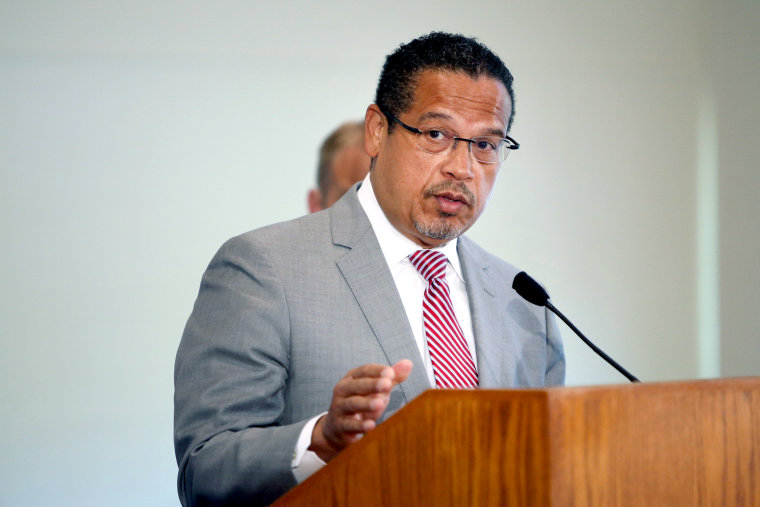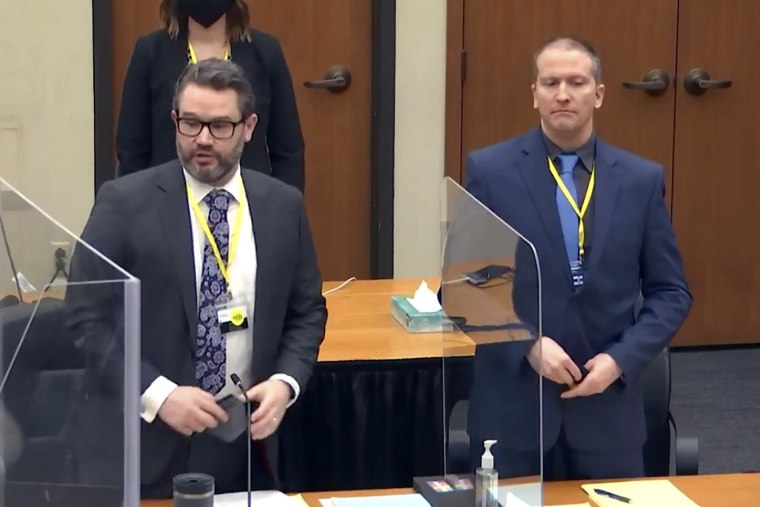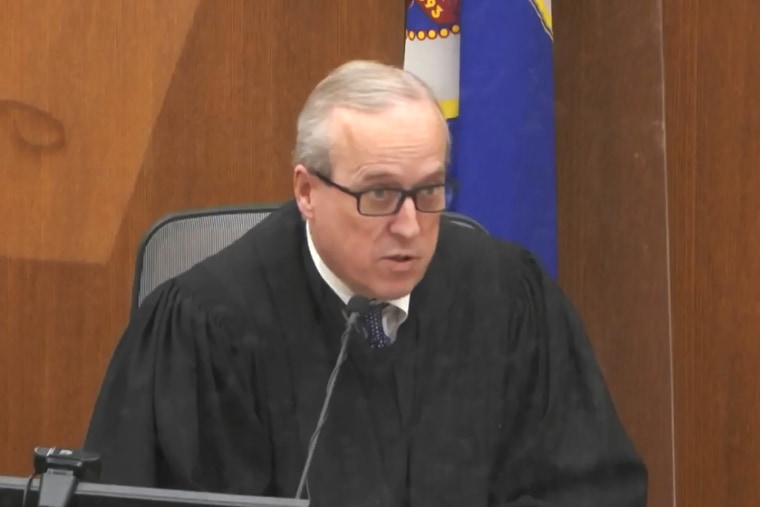The death of George Floyd in police custody last summer sparked months of protests demanding racial justice in dozens of cities around the world after bystander video of his last moments went viral.
Floyd, a Black man, died May 25 after then-Minneapolis police Officer Derek Chauvin, a white 19-year veteran of the department, pressed his knee into Floyd's neck for several minutes. A handcuffed Floyd cried out for help and repeatedly said he couldn't breathe.
Ten months after Floyd's death, opening statements in the trial of Chauvin, who was fired after the encounter, are set to begin Monday before 14 jurors, including two alternates.
The jury is made up of nine women and six men. Nine of the jurors identify as white, four as Black and two as of mixed race. They range in ages from the 20s to the 60s.
Fourteen jurors, including the two alternates, will be present for opening statements next week. A 15th juror will be dismissed unless one of the others is released before then.
Chauvin is charged with second-degree murder, third-degree murder and manslaughter. The high-profile trial is expected to be broadcast live and last for several weeks.
Here's what else to know about the charges and the people who will present the prosecution and defense cases.
Chauvin faces 3 charges
Chauvin faces second-degree unintentional murder, third-degree murder and second-degree manslaughter charges in Floyd's death.
Second-degree murder carries the heftiest potential penalty. If convicted on that charge, he could face up to 40 years in prison. Second-degree murder also requires the highest burden of proof. According to state statute, prosecutors will have to prove that Chauvin caused Floyd's death "while committing or attempting to commit a felony offense," which is assault in this case.

The lesser charge of third-degree murder carries a penalty of up to 25 years. Hennepin County District Judge Peter Cahill, who is overseeing the trial, granted prosecutors' request to reinstate the charge this month. Cahill had rejected the charge in the fall, saying the circumstances surrounding Floyd's death did not warrant it. Minnesota statute requires proof that the person charged committed an "act eminently dangerous to others,” meaning more than one person.
An appellate court ruled last month the statute could apply in this case. Chauvin's lawyer, Eric Nelson, appealed that ruling, but the state Supreme Court declined to intervene.
Legal experts said the reinstatement was a win for prosecutors because it increases the odds that jurors will convict Chauvin of murder.
The final charge Chauvin faces, second-degree manslaughter, has the lowest burden of proof and carries a maximum penalty of 10 years. Prosecutors would have to prove that Floyd's death was caused by Chauvin's negligence in creating "an unreasonable risk" and "consciously (taking) chances of causing death or great bodily harm to another."
The prosecution
The prosecution is being led by state Attorney General Keith Ellison.
Minnesota Gov. Tim Walz appointed Ellison just days after the encounter to lead the prosecution in any cases resulting from Floyd's death. Three other ex-officers involved in Floyd’s arrest are scheduled to stand trial in August. They are charged with aiding and abetting second-degree murder and manslaughter.

Ellison's appointment came after 10 members representing Minneapolis in the state House of Representative asked Walz in a letter to transfer the case from the Hennepin County prosecutor.to Ellison.
"Unfortunately, our constituents, especially constituents of color, have lost faith in the ability of Hennepin County Attorney Mike Freeman to fairly and impartially investigate and prosecute these cases," the letter said.
Ellison is the first African American and the first Muslim to hold the office of attorney general in Minnesota.
While he was in court for jury selection, other attorneys from his office and some who are assisting pro bono have handled more of the case so far.
The prosecution is being led by the head of the state's criminal division, Assistant Attorney General Matthew Frank.
The attorneys from outside Ellison's office include Steven Schleicher, a former federal prosecutor and a partner at Maslon LLP, who oversaw jury selection for the prosecution. Schleicher was a prosector on the case of Danny Heinrich, who confessed in 2016 to abducting, sexually assaulting and killing a young boy in 1989.
Jerry Blackwell, the founding partner, CEO and chairman of Blackwell Burke P.A. and the founder of the Minnesota Association of Black Lawyers, is also assisting prosecutors pro bono. Blackwell successfully argued before the Minnesota Pardon Board for the posthumous pardon of Max Mason last year. Mason, a Black man, was wrongfully convicted of raping a white woman in 1920.
The prosecution also includes former acting U.S. Solicitor General Neal Katyal, a partner at Hogan Lovells in Washington, D.C.
The defense
Chauvin's legal defense is being covered by the Minnesota Police and Peace Officers Association. Chauvin and the other three officers who were fired after Floyd's death are still eligible to have their legal fees covered by the association's legal defense fund because the Minneapolis Police Department is a member.

Nelson, Chauvin's lawyer, is a managing partner at Halberg Criminal Defense. He is also part of a 12-member panel of criminal defense lawyers who work with the Minnesota Police and Peace Officers Association. The association's website says he joined the panel in 2015 and has represented members of its legal defense fund in "critical incidents and job-related investigations."
The judge
Cahill, who was appointed to the bench in 2007 and elected the following year, will preside over the case. Before he was named a judge, he spent about 10 years in the Hennepin County Attorney's Office and also had his own law practice.

Among his recent decisions in this case, Cahill last week dismissed two jurors who had been seated over concerns that a $27 million settlement the city reached with Floyd's family would affect their ability to be impartial.
Later in the week, he denied a motion from the defense team to delay or move the trial over the same concerns about the settlement and the publicity it received.
"I don't think there is any place in the state of Minnesota that has not been subjected to extreme amounts of publicity on this case," he said in ordering that the trial proceed as scheduled.
Opening statements begin Monday.